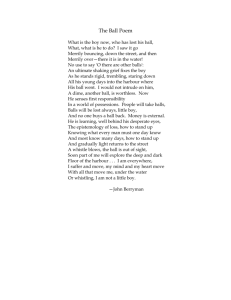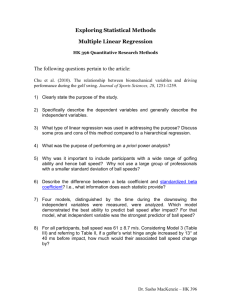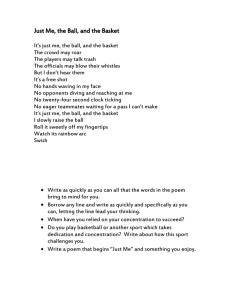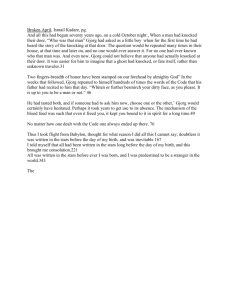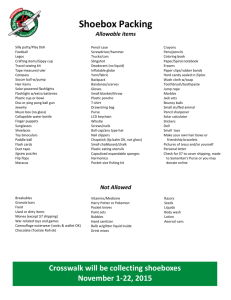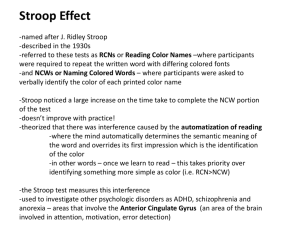Dinty W - Creative Nonfiction
advertisement
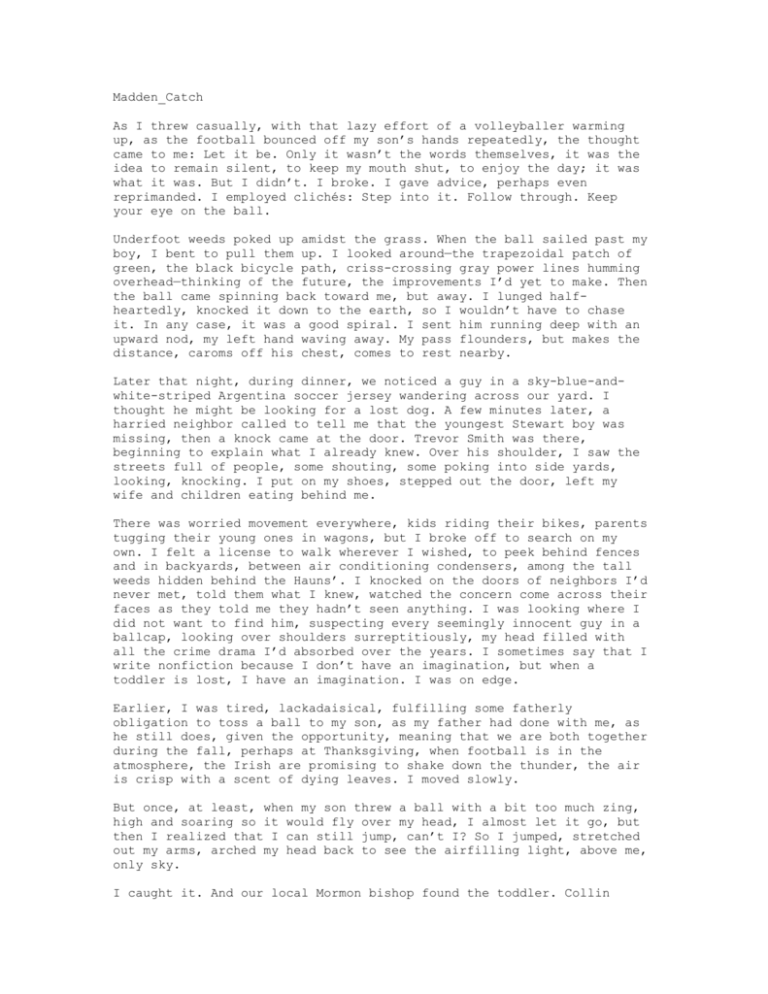
Madden_Catch As I threw casually, with that lazy effort of a volleyballer warming up, as the football bounced off my son’s hands repeatedly, the thought came to me: Let it be. Only it wasn’t the words themselves, it was the idea to remain silent, to keep my mouth shut, to enjoy the day; it was what it was. But I didn’t. I broke. I gave advice, perhaps even reprimanded. I employed clichés: Step into it. Follow through. Keep your eye on the ball. Underfoot weeds poked up amidst the grass. When the ball sailed past my boy, I bent to pull them up. I looked around—the trapezoidal patch of green, the black bicycle path, criss-crossing gray power lines humming overhead—thinking of the future, the improvements I’d yet to make. Then the ball came spinning back toward me, but away. I lunged halfheartedly, knocked it down to the earth, so I wouldn’t have to chase it. In any case, it was a good spiral. I sent him running deep with an upward nod, my left hand waving away. My pass flounders, but makes the distance, caroms off his chest, comes to rest nearby. Later that night, during dinner, we noticed a guy in a sky-blue-andwhite-striped Argentina soccer jersey wandering across our yard. I thought he might be looking for a lost dog. A few minutes later, a harried neighbor called to tell me that the youngest Stewart boy was missing, then a knock came at the door. Trevor Smith was there, beginning to explain what I already knew. Over his shoulder, I saw the streets full of people, some shouting, some poking into side yards, looking, knocking. I put on my shoes, stepped out the door, left my wife and children eating behind me. There was worried movement everywhere, kids riding their bikes, parents tugging their young ones in wagons, but I broke off to search on my own. I felt a license to walk wherever I wished, to peek behind fences and in backyards, between air conditioning condensers, among the tall weeds hidden behind the Hauns’. I knocked on the doors of neighbors I’d never met, told them what I knew, watched the concern come across their faces as they told me they hadn’t seen anything. I was looking where I did not want to find him, suspecting every seemingly innocent guy in a ballcap, looking over shoulders surreptitiously, my head filled with all the crime drama I’d absorbed over the years. I sometimes say that I write nonfiction because I don’t have an imagination, but when a toddler is lost, I have an imagination. I was on edge. Earlier, I was tired, lackadaisical, fulfilling some fatherly obligation to toss a ball to my son, as my father had done with me, as he still does, given the opportunity, meaning that we are both together during the fall, perhaps at Thanksgiving, when football is in the atmosphere, the Irish are promising to shake down the thunder, the air is crisp with a scent of dying leaves. I moved slowly. But once, at least, when my son threw a ball with a bit too much zing, high and soaring so it would fly over my head, I almost let it go, but then I realized that I can still jump, can’t I? So I jumped, stretched out my arms, arched my head back to see the airfilling light, above me, only sky. I caught it. And our local Mormon bishop found the toddler. Collin Peterson told me: “He looked like he knew where he was going. Just walked right there.” The boy was in his next-door neighbor’s basement. He’d entered through their lower-level back door, then stayed quietly inside for nearly an hour while everyone was out looking for him. The good news spread quickly, or I was among the last to know; maybe I was too far away. People stayed in the streets long after the police left and the Stewarts went back to their ordered, normal life, with perhaps a few more hugs than most nights. The sun was setting over the west mountains. My neighbors gathered in groups to talk. David Nash, who lost his wife to cancer earlier in the year, was smiling over near the bank of mailboxes. I couldn’t hear what he was saying, but his deep Boston resounded, beating out the wiry overhead crackle and hum, at least for the time being.

